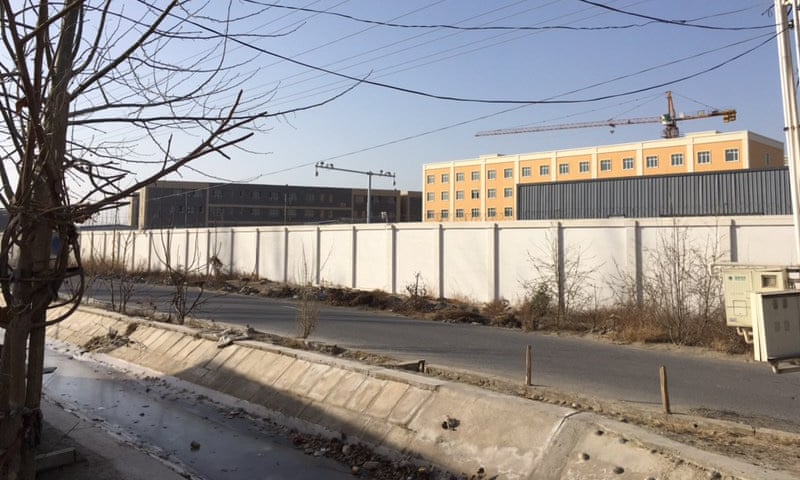The Ongoing Battle Within China’s Borders
Picture of Xinjiang, China, provided by Guardian staff researching large scale detentions of Uighur Muslims.
February 5, 2019
The Luopu County No. 1 Vocational Skills Training Center, located in Western China, is easily detected as it is off a highway lined with police patrols and white concrete walls keeping anyone from escaping.
Up to three million Uighurs, a Muslim ethnic minority, have been detained in the center erratically.
With such large numbers and a tenth of the detained population being Muslim, this raises a lot of human rights issues. United Nations Human Rights High Commissioner, Michelle Bachelet, has requested direct access to the re-education camp’s region since she has had numerous reports of the “wartime like concentration camps.” These are mostly occurring in the far west Xinjiang region. In December, the UN also asked for access to the camps due to the reports they received about 1.1 million Uighurs, Kazakhs, Hui, and other minority groups being detained. The country claims these camps are meant to detain people who have committed minor crimes and to help provide employment opportunity.
However, these Muslims being detained aren’t just going in to a prison-like setting. They are being tortured in many ways. Two videos of interviews with a Muslim man and Muslim woman say it all. The women are beat, drenched in water once they are unconscious, and forced to come back to be beat again. The man claimed to have been beat as well, humiliated, and sexually assaulted. Not only that, but they are forced to eat pork and drink alcohol, something their religions do not allow.
Most families coming to the prison to see a loved one are hesitant to speak out to others when questioned about the conditions in the centers because they aren’t formal prisons, they are places for Muslim minorities to be taken for months until they are finally given a trial. These camps are expanding through force and financial incentives. Luopu County is said to be home to eight of these camps now. In the past year, ten buildings have been added to these “training centers”.
The people spoken to and interviewed are very afraid just to speak to journalists; they fear the Chinese government will retaliate for speaking out.


